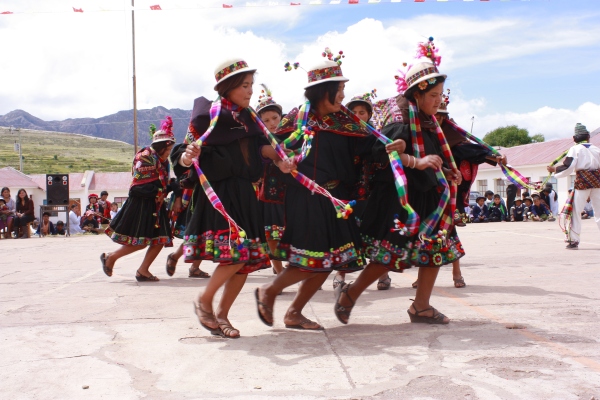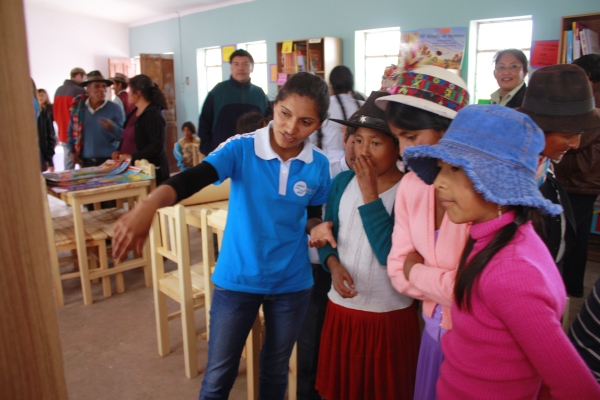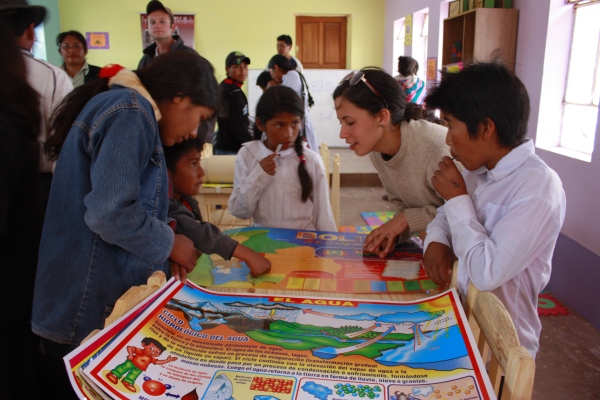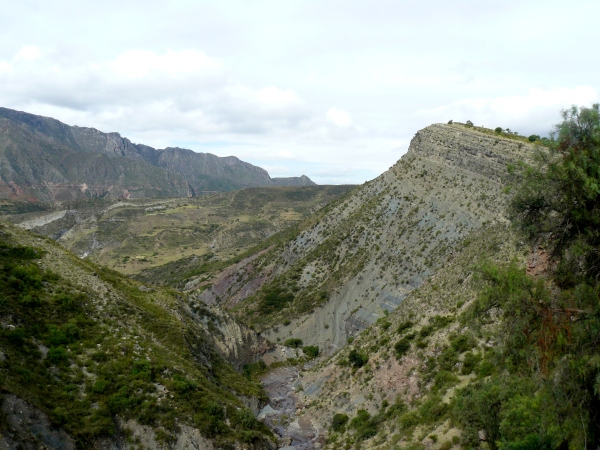Opening a library in Maragua
- Posted In : Maragua , Stories , Inauguration, Maragua
- 0 : comment
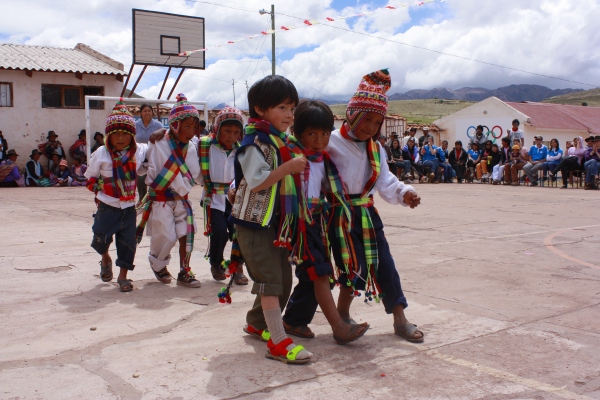 It was 4:30am on my third day in Bolivia, and I was already awake and boarding a micro, a type of small bus common in Sucre. Almost twenty of us fit ourselves into the bus’s cramped seats, clambering over the boxes of books packed into the aisle. We were on our way to Maragua to open a library.
It was 4:30am on my third day in Bolivia, and I was already awake and boarding a micro, a type of small bus common in Sucre. Almost twenty of us fit ourselves into the bus’s cramped seats, clambering over the boxes of books packed into the aisle. We were on our way to Maragua to open a library.
Maragua is a rural community approximately 40 miles outside the city of Sucre (although narrow mountain roads make it a lengthy trip). Set in a beautiful crater-like rock formation that resembles the petals of a flower, the tiny town’s low buildings are barely visible in the enormous landscape – especially after a 3:15 wake up call. Nonetheless, Maragua’s school serves more than 200 students, many of whom travel in from the surrounding countryside.
On this particular morning, Biblioworks was about to inaugurate its tenth library in the Maragua school, and I was lucky enough to go along for the ceremony. At approximately 7:30am, our crowded micro came to a halt in front of the school, and we piled out with our boxes of materials. We were a mixed group of Biblioworks and CondorTrekkers staff, community members, and Bolivian and foreign volunteers, but we quickly formed a team. The inauguration ceremonies were scheduled to start shortly, and the room that was to be the library was still completely empty.
For several hours, we worked feverishly, sweeping the floor, moving furniture, and organizing books in shelves. We decorated the library, blew up balloons, and put together 250 gift bags with donated school supplies for every student. Soon, children started to arrive in their uniforms, ready for the celebration. Obviously fascinated by the new school supplies and the mysterious new library, they helped us prepare with contagious enthusiasm.
Finally it was time to begin the festivities. Our team sat under the burning Andean sun and listened to community members give speeches in Spanish and Quechua, commemorating the anniversary of the founding of the Maragua school and the opening of the library. The students, on the other hand, marked the occasion with traditional dances.
The celebrations really picked up when the bowl of chicha appeared. Chicha is a homemade corn beer traditional throughout the Andes, and we all took sips from the communal bowl – although it passed around far too many times! Our group’s lucky leaders were honored with extra chicha, rings of homemade bread, confetti, and dancing.
The highlight of the day came with the cutting of the ribbon in front of the library door, when the community finally entered its biblioteca and audiovisual room. Children and adults alike rushed into the rooms, eager to see the new books, maps, games, craft materials, and computers.
We ended our visit to Maragua with an enormous meal that some of the mothers of the community had spent the entire morning preparing. It was accompanied by – you guessed it – even more chicha. Afterward, looking for a walk to help settle all the food, we hiked to see the Garganta del Diablo, a local tourist attraction.
As we settled back into the micro, ready for the almost three-hour ride back to Sucre, my compañeros asked me, “How was that for your third day in Bolivia?” Sunburnt, tired, and too full of ají and chicha, I remembered the faces of the children of Maragua as they rushed into their library for the first time. My third day in Bolivia couldn’t have been better.
– Diane (Biblioworks volunteer April-May 2013)


